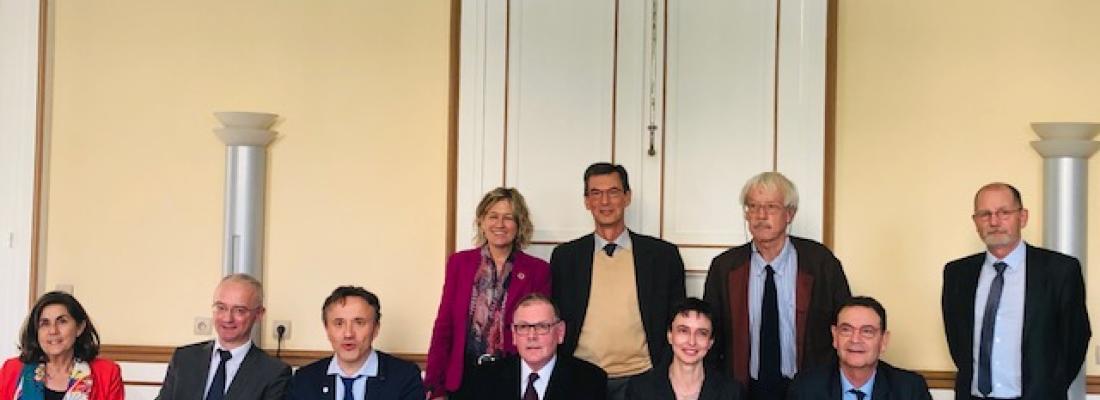Society and regional strategies Reading time 3 min
French agricultural research and CGIAR reinforce their scientific collaboration to the benefit of agriculture, food and climate change
Published on 04 May 2019

The joint declaration, signed by the CEOs of the French research and agronomic training institutions and the Chair of the System Management Board of CGIAR, was the result of a joint reflection project initiated in June 2018. The declaration aims at ensuring an improved synergy of the scientific capabilities between the French organizations, the CGIAR Research Centers, and the national research systems in developing countries across agriculture and climate change, agroecology, nutrition and sustainable food systems. These three thematic areas are of shared interest and align with strategic areas of global development.
"France is proud to have welcomed the headquarters of this international organization, CGIAR, to its territory, moreover I would like to emphasize France’s recognition of the importance of the CGIAR as well as its location in France and most specifically in Montpellier. France wants its collaboration with CGIAR to be part of a genuine long-term strategy going forward. We therefore propose to promote and to support the creation of ambitious partnership projects, backed by the joint declaration of collaboration, to achieve our common development goals,” said Laurent Bili, Director General of globalization, culture, education and international development at the Ministry of Europe and Foreign Affairs.
“CGIAR and France are converging on three priorities and this intensified collaboration will enable France to make better use of the strong assets CGIAR has, such as our 15 top-class Research Centers, our local presence in over 70 countries and our partnerships network of more than 3,000 partners from national governments, academic institutions, global policy bodies, private companies and NGOs,” said Marco Ferroni, Chair of the CGIAR System Management Board. “Together we are determined to achieve greater science and more impact.”
The reinforcement of the France-CGIAR collaboration will be achieved through the exchange of researchers and experts, shared resources, the organization of workshops and encourage joint participation in international programs, joint project building and capacity building activities with the end goal to strengthen capabilities on both sides.
This joint declaration is a key step in the development of the CGIAR-France relationship, as it forms the basis of a broader and longer-term framework for an action plan to enhance the ongoing scientific, institutional and financial partnerships by all the partners involved, research and higher education organizations as well as ministries.
Since 2010, France has been the depository of the Founding Treaty of CGIAR as an international organization. France hosts the CGIAR headquarters (System Management Office) in Montpellier within premises made available by the Region of Occitanie. The headquarters are located in the heart of the Agropolis cluster, which is recognized worldwide for its scientific excellence in agricultural research and training for development.
Find out more
About the CRAI
The international commission for agricultural research is an advisory body composed of the French research organisations concerned by this theme (Agreenium, Cirad, INRA, IRD, Irstea), the Agropolis International association and the three ministries in charge of research, foreign affairs and agriculture. The main role of the CRAI is to define the strategic positions and coordinate the international French actions in agronomic research.
For more information about CRAI
About CGIAR
CGIAR is a global research partnership for a food-secure future. CGIAR science is dedicated to reducing poverty, enhancing food and nutrition security, and improving natural resources and ecosystem services. Its research is carried out by 15 CGIAR Research Centers in close collaboration with hundreds of partners, including national and regional research institutes, civil society organizations, academia, development organizations and the private sector.
